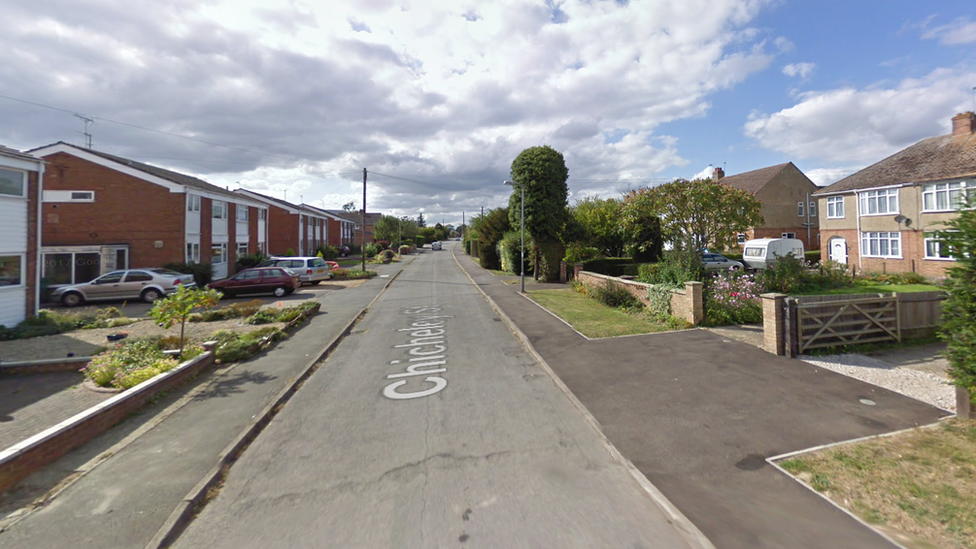'My life stopped when my brother killed our dad'
- Published
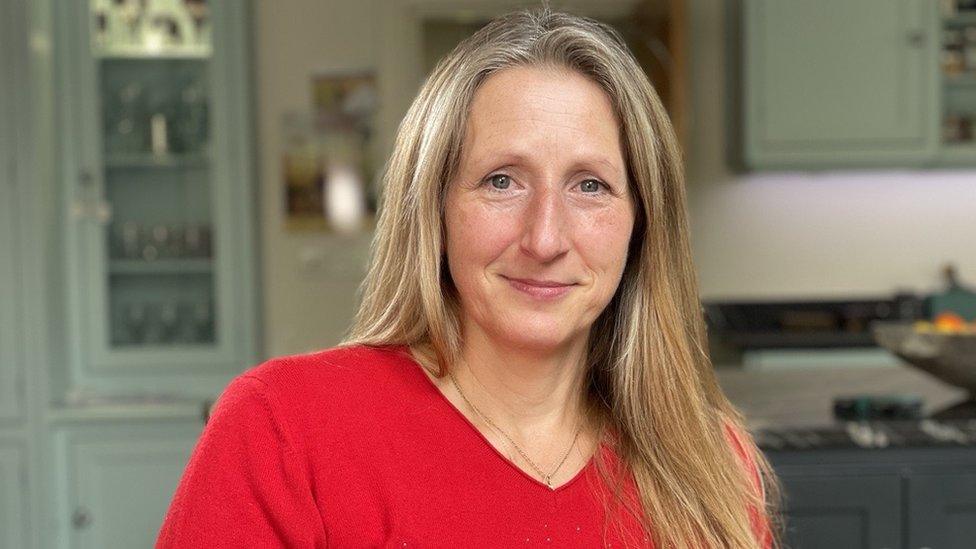
Karen Cooper is calling for ongoing support for those bereaved by homicide
Karen Cooper's life "stopped overnight" when her brother Gary killed their father and attacked their mother. Nearly five years on, her story raises questions over whether the attack was preventable and what help is available for families in the aftermath of such a killing.
In March 2019, Karen decided to bake a cake to celebrate her father Hedley Robinson's birthday. The family were gathering together to celebrate his 86th year.
But the very next day, Karen's mother Margarete phoned her. The police had been called, Margarete said, because her son Gary was "smashing up his house again".
Karen, who is speaking to the media for the first time, says it echoed her brother's behaviour three years earlier when he was sectioned for three months.
"You think, 'OK, here we go again'," she says.
Her husband went over to tell Thames Valley Police (TVP) officers it was "not a new thing" and that Gary needed to be sectioned again.
Instead, he was arrested, sent to hospital and later taken back to the police station.
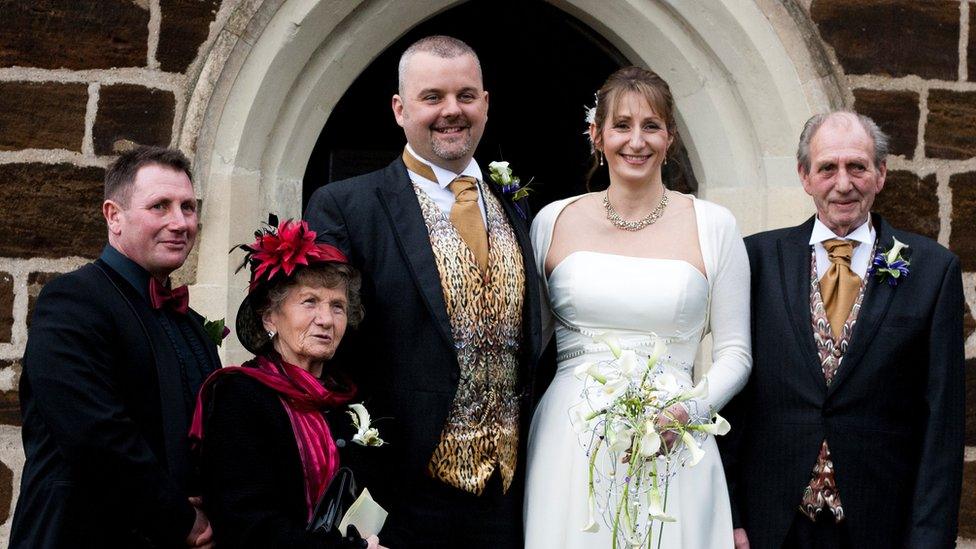
Gary Robinson, Margarete Robinson, Karen Cooper with husband and Hedley Robinson at Karen's wedding
Gary was deemed not suitable for detention under section 136 of the Mental Health Act, legislation used by police forces to take people to places of safety, despite "a lot of people saying this man is not well".
After being found not fit for interview, police had no option but to release him under investigation.
Margarete had been called to the station as a responsible adult and officers drove her and Gary to her home in Newport Pagnell.
Just ten minutes after being left alone, Gary attacked his parents with a knife.
Karen first heard of the attacks when she returned home from a course to find a police car on the driveway, which whisked her off to hospital.
Her father was in surgery while her mother was lying in a hospital bed in accident and emergency, having been stabbed in the throat.
"She didn't have much of a voice but she was just saying 'Gary did it'. She couldn't believe that he had done it and attacked them," says Karen.
While Margarete survived - a vital artery having narrowly been missed - medics were not able to save Hedley, who died three weeks later.
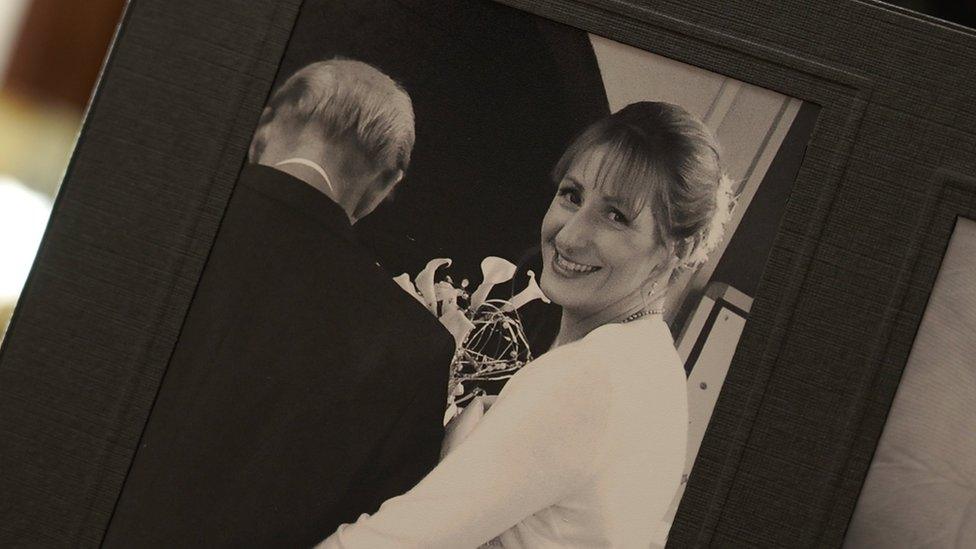
Karen Cooper pictured with her father, who gave her away at her wedding
At the Old Bailey in August that year Gary was given an indefinite hospital order after he admitted manslaughter with diminished responsibility and attempted murder.
Psychiatrists agreed he was suffering from schizoaffective disorder.
Karen believes that more could have been done to prevent the attack. "If they would have sectioned my brother on that day and put him into a facility or even detained him for another 24 hours then yeah, I would like to think so," she says.
Agencies focus on the court process but then move on and forget about those who are left behind, she says.
"I've got a different life path now and where is the support to help me and anyone really re-orientate themselves to this new way of being?
"It's not ending, there's not a timeframe on this.
"There seems to be [an attitude of] 'the events happened, we've done the prosecution... He's there in jail or there sectioned. We've ticked our little boxes'."
She says it has been like a life sentence for her family, whose lives "stopped overnight", with their futures "forever altered".
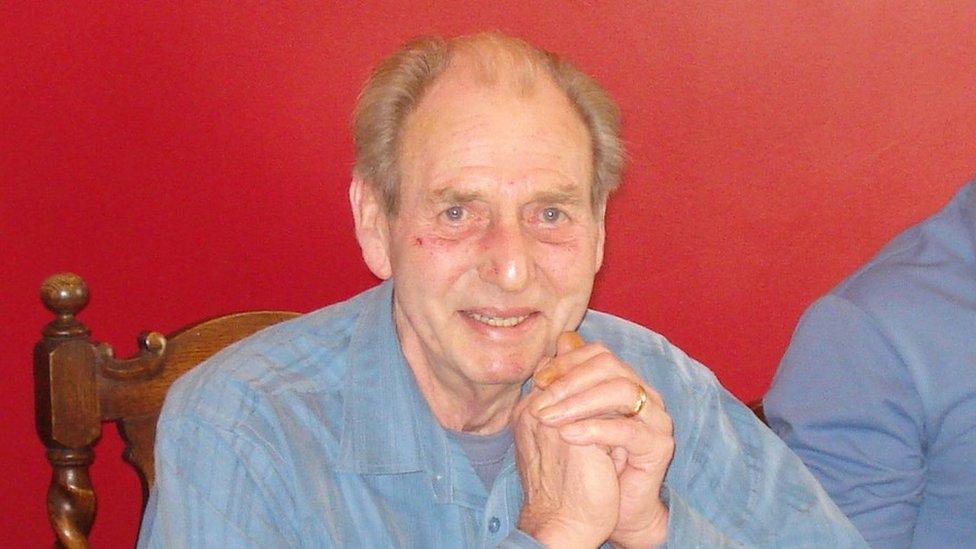
Hedley Robinson served in the Korean War
"My brother is getting the help and support, he's in a mental secure hospital... so all of his needs are being met and he is being taken care of there.
"Me and my family? There's no-one taking care of that. You have to do it yourself."
Karen, who sold her business of more than 20 years as she felt unable to work after the attack, believes families in her situation should have access to specialist therapists and counsellors as well as legal support.

If you are affected by any of the issues in this article you can find details of organisations that can help via the BBC Action Line

At her father's inquest, both police and the mental health trust involved, Central and North West London NHS Foundation Trust (CNWL), were asked to urgently review their section 136 procedures.
TVP said as a result it has changed its handling of people with mental health issues in custody and has updated training.
Assistant Chief Constable Katy Barrow-Grint points out that the coroner found that at the time Gary Robinson was released from custody there was no reason to suspect he would harm himself or his parents.
"The coroner also found that an informal request for a second section 136 assessment should have been followed up formally by police, which we accept.
"However, the coroner also found that several informal requests for a re-assessment of Gary Robinson's mental health were made to mental health professionals, but were declined."
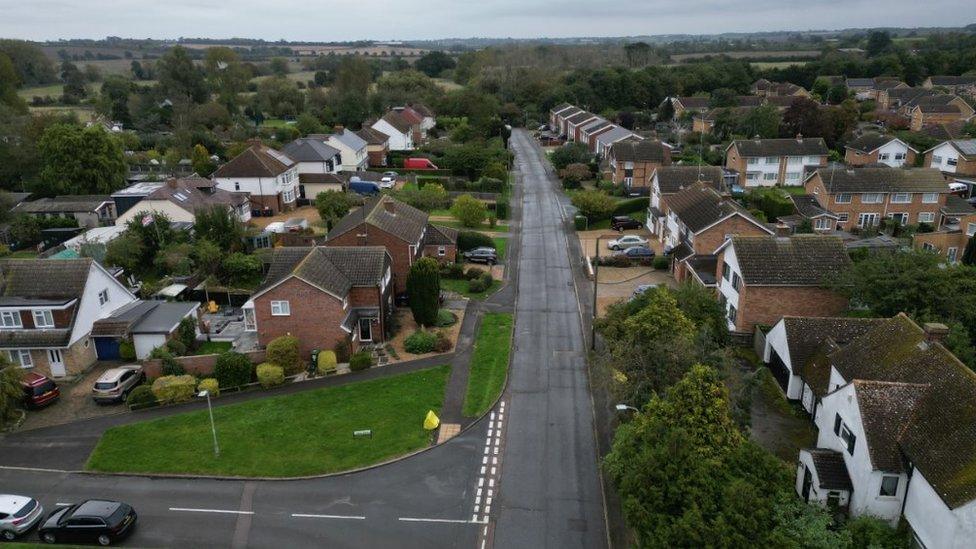
The attack happened in Newport Pagnell in 2019
A domestic homicide review has yet to be published. The case has not been investigated by the police watchdog, the Independent Office of Police Conduct, nor have any misconduct proceedings taken place.
The BBC has learned that the force only made a mandatory referral in relation to Gary's injuries - not his parents - and as Gary was not seriously injured, the IOPC decided not to investigate.
Police did not deem there to be a causal link between police contact with Margarete and the subsequent attack.
The IOPC decided a later family complaint should be investigated by TVP's professional standards department, who identified a "lack of effective communication around the next of kin's point of contact" at the hospital two days before the attack.
CNWL said improvements were made in information sharing so staff "can ensure that they have any relevant information about a patient's forensic history before admission to the section 136 suite".
The trust added that patient confidentiality prevented them from speaking in detail about the case. "As at the inquest, we repeat our sadness over what happened," the trust said.
"Our door is always open to provide support after sad events like this and we would encourage anyone affected by these events and feeling in need of support to contact us."
In response to Karen's call for extra support to families, the Ministry of Justice said the government was "quadrupling funding for victim support services and our victims and prisoners bill will expand the definition of a 'victim' to include families bereaved by homicide, like hers, so they get the full support they deserve."
For Karen, she has to carry on with life knowing what her brother did.
"The challenge is he is my brother and I love him.
"He's my baby brother, and at the same time he did a horrific, awful, vicious attack on my parents and killed my dad. And you hold both."

Follow East of England news on Facebook, external, Instagram, external and X, external. Got a story? Email eastofenglandnews@bbc.co.uk, external or WhatsApp us on 0800 169 1830
Related topics
- Published16 August 2019
